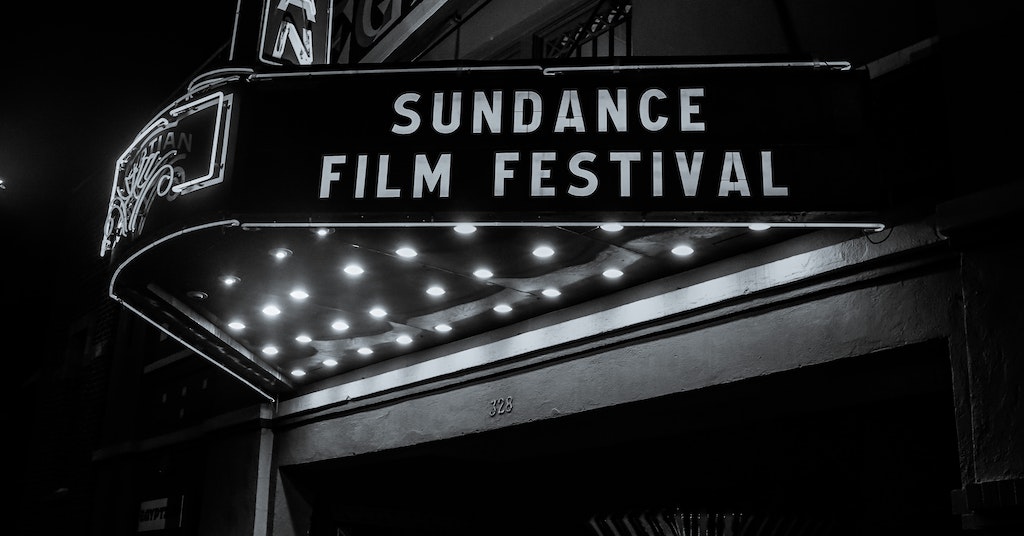Knowing Roland’s goals, Ruzenski agreed to help and worked closely with him. “The needs, depending upon a person’s vision or hearing loss, are very tailored to that person.

Coping with hearing loss during the Coronavirus outbreak
March 23, 2020
A guide to group video calling apps for hearing loss
March 25, 2020Deaf-Blind actor gets lead role in short film

A man from Long Island has become “perhaps the first deaf-blind actor in a lead movie role,” according to the New York Times.
Robert Tarango, a kitchen worker from the Helen Keller National Center for Deaf-Blind Youths and Adults is the star of a new short film that is part of a larger presentation called, “The Feeling Through Experience.”
A feature role for a deaf-blind actor
Filmmaker Doug Roland tells the New York Times that the film, “Feeling Through,” was inspired by his experience interacting with a deaf-blind man in New York’s East Village.
“It was the first time I’d met a [man who is deaf-blind] and he just took my arm and trusted me, a total stranger on a New York street, to direct him,” Roland told The New York Times. “There was a gift in every one of those exchanges. In that chance encounter, there was an instant connection with someone from a community I knew nothing about.”
“The Feeling Through Experience” presentation typically includes the film, a panel discussion and a 24-minute documentary about making the film.
Casting a deaf-blind actor
Instead of having an actor emulate the character’s condition, Roland says he was determined to find a deaf-blind actor.
The movement to use deaf actors in deaf roles has taken on more importance in recent years. Along with social movements like #DeafTalent, the prevalence of award-winning actors and actresses is also increasing in Hollywood.
Marlee Matlin, Nyle DiMarco, Shoshannah Stern, Josh Feldman and Millicent Simmonds are just some of the deaf actresses and actors who have been in television and film productions lately.
“The mentality that ‘deaf people should only play deaf roles’ has been the mentality of the deaf community since the ’90s,” deaf filmmaker Jules Dameron told HearingLikeMe in 2017. “I just feel that it’s unethical for a privileged person to play a role that is meant for others. Deaf people already can do the job themselves.”
Read more: Q&A with Deaf filmmaker, Jules Dameron
To locate a deaf actor and ensure the film was accessible, Roland turned to the Helen Keller National Center for Deaf-Blind Youths and Adults.
“No one had ever approached us about making a film starring a deaf-blind actor, and I have to say I was skeptical,” Sue Ruzenski, the center’s executive director, told the Daily Bruin.
After auditioning several people who didn’t quite fit Roland’s vision, Ruzenski suggested Tarango, a kitchen worker.
A Childhood Dream Come True
Tarango says he thought he was in trouble when he was first contacted. When he learned that they wanted him to audition, it fulfilled his childhood dream.
Tarango, who grew up deaf but sighted, began losing his sight in his 20’s, as a result of Usher syndrome. With his sight, he also lost his dreams of being an actor, according to the New York Time’s article. He says old-school leading men like John Wayne, Henry Fonda, and Burt Lancaster were his idols.
Landing the role was a childhood dream come true for Tarango.
Steven Prescod, who also stars in the film, told the New York Times that he was inspired by Tarango.
“When I met him and realized there were people out there who were blind and deaf, I was like, ‘How does that even work?’ He helped me as an actor and definitely inspired me as I acted alongside him.”
Prescod learned Tarango, like many deaf-blind people, get assistance from trained guides and uses alternate ways of adapting and communicating. For instance, Tarango navigates public transit mostly by memory and with the help of his cane.
Film Screenings
Tarango will appear at screenings across the country alongside Roland, according to the NYT article.
The director is raising money in hopes of expanding the short into a feature film.
Tarango says he also hopes to get picked for another acting role. Both men are hoping “The Feeling Through Experience” will raise awareness of the deaf-blind community – specifically, how prevalent accessibility can and should be.



